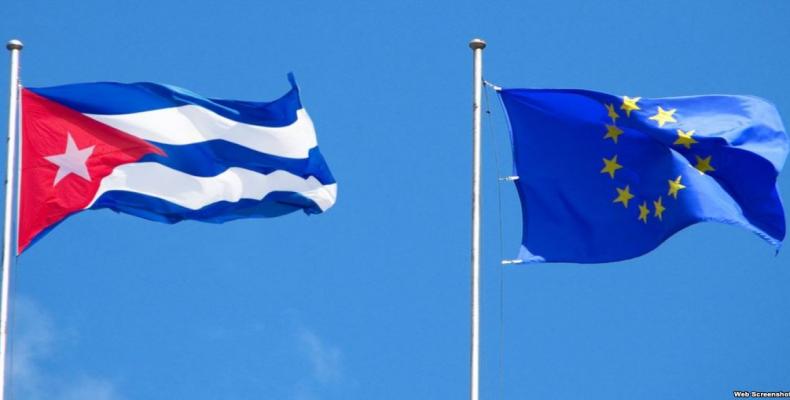Havana, October 4 (RHC)-- Cuba´s Foreign Ministry announced the celebration of a dialogue on human rights between Cuba and the European Union which took place in Brussels on Thursday, within the framework of the Political Dialogue between the regional bloc and the Caribbean island.
The Cuban delegation was headed by ambassador Rodolfo Reyes Rodriguez, Director General of Multilateral Affairs at the Cuban Foreign Ministry, while the EU delegation was led by Eamon Gilmore, UE Special Representatives for Human Rights.
According to a statement published by the Island´s foreign ministry website, during the encounter, which was held amidst a respectful and constructive setting, both parties dealt with political, civil economic, social and cultural rights.
The document states that during the meeting It became evident that differences in positions and approaches persist on several of the issues discussed. At the same time, there was a willingness to address different issues, based on full respect for sovereign equality, independence, legality and non-interference in the internal affairs of the Parties.
The Cuban delegation made reference to the country's results in the issues discussed during the dialogue, which have been achieved by overcoming the intensification of the economic, commercial and financial blockade of the United States against Cuba under the government of Donald Trump, which constitutes a flagrant, massive and systematic violation of the human rights of all the Cuban people; and the main obstacle to the country's development.
In addition, the Cuban delegation ratified the island´s willingness to continue advancing towards higher levels of realization of all human rights for all, on the basis of the mandates and protection for these rights enshrined in the new Constitution of the Republic.
As part of the exchange, the statement added, it was evident that all the countries have challenges in the promotion and protection of human rights. The Cuban delegation expressed its concerns about human rights situations in member States of the European Union. Particular emphasis was placed on the need to combat the advance of supremacist ideas, hate speech, intolerance and xenophobia in Europe, in particular against migrants. The issue of obstacles to the participation of minorities in the conduct of public affairs in the European space was also addressed, as well as the persistent inequality faced by women in terms of employment and salary in some Member States.


